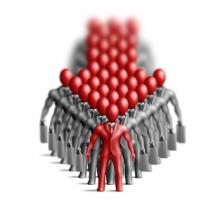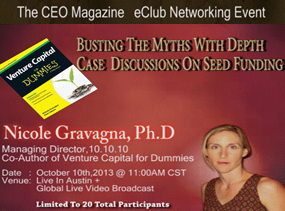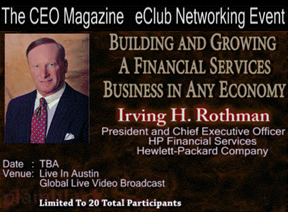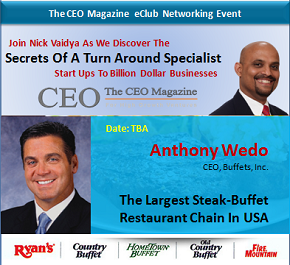You are here
- Guest Blogger |
- Leadership |
- Thu, 04/09/2015 - 23:35

Dõv Baron, Author, Fiercely Loyal: How High Performing Companies Develop and Retain Top Talent
Leadership and what it takes to be great at it have likely been debated since some caveman rallied a few of his buddies to help him take down the big prey.
Two of the guidelines we have typically used to determine whether someone is a great leader are: 1. How many followers did/do they have? and 2. How loyal were/are those followers? These may indeed be guideline and it doesn’t mean they are the best ones. For example, Katy Perry is in the number one position for the most followers on Twitter. While the Dalai Lama is in the one hundred and first position. You tell me which one of these two is a more important leader?
Then there’s the issue of loyalty. In the case of Katy Perry, the question becomes, “Will she have as many ‘loyal’ followers ten, fifteen, or twenty years from now?” If you're not sure, consider that things would have naturally moved south including, one would suspect, her ability to fill a stadium.
To explain, let’s go back and look at few notable leaders over the centuries. Now I’m not here to judge if they were “good” or “bad.” The fact that they had thousands, even millions, who were willing to die for them makes them notable leaders.
One is Alexander the Great. He came to power at age 20 and by age 30, he was ruler of an empire that stretched from Greece to Egypt, and into present-day Pakistan. Undefeated in battle, he is still considered one of the world’s greatest military leaders. His men followed him for years, literally to the ends of the earth, until one day they simply refused to go any further.
Then there was Julius Caesar. He rose to the highest office in Rome and ruled the entire known world until that fateful day in March when his fellow senators and former friends stabbed him to death.
Or take Hitler. You might consider him the embodiment of evil, but there is no denying that he captured the imagination of a nation who blindly and obediently followed his orders, even to the executions of millions and millions of innocents. Where did Hitler end up? Committing suicide while cowering in an underground bunker.
Dead and Disgraced
These men and countless others like them enjoyed enormous power and prestige, and were considered great leaders of their time. But ultimately, they failed to keep the loyalty of those under them and ended up dead and disgraced.
Why? What made their leadership fall apart?
Part is, of course, that their styles of leadership no longer served. This is true today when authoritarian, command and control “I am the boss and I say so” leadership is proving ineffective with the next generation of workers.
Genuine Involvement
But what really doomed those leaders and what dooms leaders today is the lack of connection the leader has with his or her followers. All of the leaders I mentioned earlier started out by being genuinely involved and concerned with the people they were leading—or at least they did a good enough job of pretending to be concerned that they were able to fool most people.
Alexander the Great was a man’s man, who fought—and drank and whored—alongside his troops. Julius Caesar was at the front lines of battle, inspiring his men to cross the Rubicon and face their foes with his own courage. Hitler made the Germans feel as if he cared personally about each one of them and their lives. Then each of these men stopped doing the very thing that brought them to power.
Alexander the Great isolated himself with a few friends and ignored the hardships of his men. Julius Caesar became captivated with the riches of Cleopatra and Egypt and was no longer engaged with his troops in an intimate fashion. Hitler became a mad megalomaniac who exposed his lack of care for anyone but himself.
The result was that their followers, except for a few sycophants, left in droves. The brilliant comet of their leadership crashed and burned.
In conclusion, we can measure a leader and how great they were in a myriad of ways. Battles won, enemies defeated or even wealth accumulated are all old measures, that still have contemporary equivalence. Battles won; "We took out the competition." Enemies defeated; "We pushed them into a corner and did a merciless hostile takeover." And, wealth accumulated needs no explanation.
Those things being what they are, they’re not the measure for great leadership today. I put it to you that in today’s world the true measure of leadership is the lasting loyalty of others to that leader, even after they have left the seat of power. Think about Mitt Romney: he got the GOP vote, everyone rallied around him, and the minute he lost the election he was a man scorned by his own party.
So what is it that makes people not just loyal but Fiercely Loyal? Again this is up for debate. However, I put it to you that it’s undebatable that as a leader dealing with today’s seemingly disloyal workforce you must have a powerful purpose. You must also be able to masterfully communicate that purpose—speaking skills are a must. And, possibly most important of all, your followers must be able to easily relate to, and get to you.
Throughout history we have seen that those who remain great to the end are those who don’t stand on high, but rather, come down from the pedestal and be with the people who believe in their message. Great, and truly notable leaders are accessible because they are as bonded with the followers as their followers are with them.
About the Author
Dov Baron was named by Inc Magazine as one of the Top 100 Leadership Speakers for Your Next Conference. As the leading authority on Authentic Leadership and the founder of "Full Monty Leadership," he works with leaders in creating teams that become fiercely loyal. A bestselling author, Dov's latest book is Fiercely Loyal: How High Performing Companies Develop and Retain Top Talent. Learn more at FullMontyLeadership.com.
Follow The Blog
Blog Categories
- Business Ops. (45)
- Editors (3)
- Entrepreneurship (196)
- Finance (25)
- Leadership (529)
Blog Authors
- Guest Blogger (835)
- Cynthia Kay (92)
- Linda Henman (78)
- Dianna Booher (46)
- Craig Ross (31)













